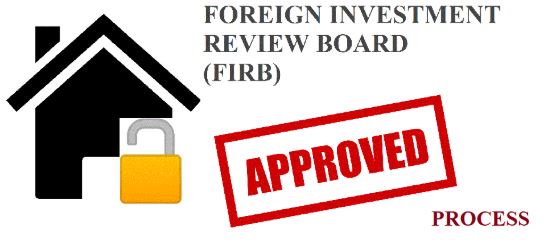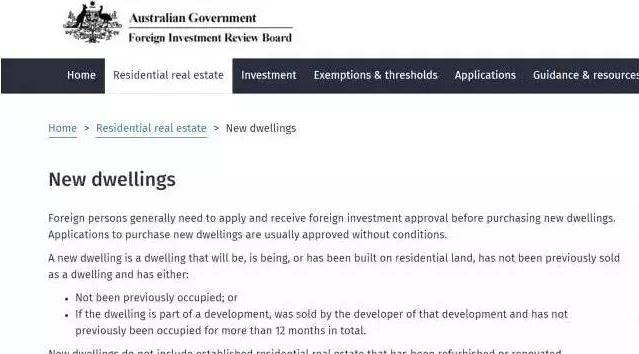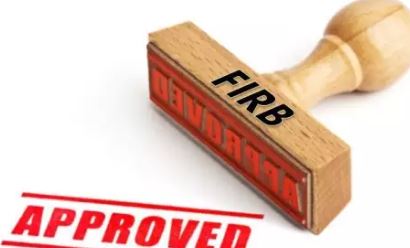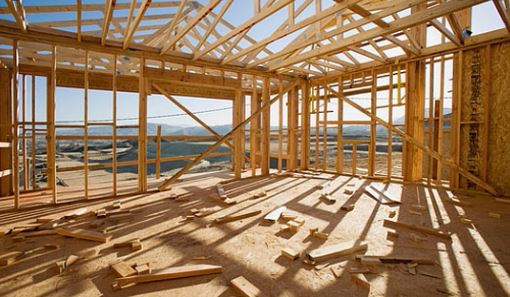
Overseas investors cannot avoid dealing with FIRB when buying properties in Australia. However, many overseas buyers are very vague about the concept of FIRB. This article mainly revolves around the definition of the term and its specific approval process and whether overseas investors ’home purchase applications will be rejected. These three points bring you today. Sharing.

Definition of FIRB and applicants

FIRB (Foreign Investment Review Board), translated into Chinese as a foreign investment review board. The organization is mainly responsible for approving foreign investors ’investment projects in Australia. Overseas investors need to apply for FIRB online before purchasing the property after successful approval.
Foreigners other than Australian permanent residents and Australian citizens are required to apply for FIRB approval online. In particular, Australian temporary residents also need to pass FIRB audits, such as TR, work visa, student visa, etc .;
For a new house transaction (new house: a new house refers to a newly built house that is under construction or will be built and has not previously been bought or sold by the house; or the house has not been used for more than 12 months ), Is the type of property most chosen by overseas investors. For general overseas investors to buy new houses, FIRB can be unconditionally approved and there is no limit to the number and number of new houses, but each time you need to reapply.
Next is the purchase of second-hand housing, there are very strict restrictions on applying for FIRB. First, the purchaser must hold an Australian temporary residence visa for one year or more (student visa, work visa); secondly, the property purchased must be self-contained; secondly, the property must be sold 3 months before the visa expires. Of second-hand properties.
Furthermore, in the case of redevelopment of second-hand housing, for redeveloped residential projects, overseas investors also need to be approved by FIRB and ensure that the number of newly constructed housing is greater than the original number.
For land that does not have any construction or investment, the general overseas investors will be conditionally approved to purchase vacant land to build houses. The specific conditions are that land development and construction needs to be completed within 4 years, and construction needs to be started within 24 months of purchase. A completion certificate or occupancy certificate must be provided 30 days before completion.
So, at what stage should I start applying for FIRB? This problem must start with the procedure of buying a house.

Overseas people buying a house

The first step is to book a house
Buyers must first choose their favorite house, and then pay a sum of money. After the selection, the amount is generally 1,000-10,000 Australian dollars. Apply to the agent or the developer to keep the house. The deposit will be refunded to the buyer within the specified time.
The second step is to sign the contract
The intermediary / developer provides the purchase contract to the purchaser or his lawyer. The home buyer signs after consulting with his representative lawyer and fully understanding the contract. At the same time, the developer also needs to sign the house purchase contract and provide the buyer with a contract signed by both parties. At this point, the house purchase contract becomes effective.
The third step is to submit the application
When a home buyer is not an Australian citizen or permanent resident, but an overseas investor, a home purchase application must be submitted to the Australian Overseas Investment Review Board (FIRB). Overseas buyers need to fill out an application form and submit it to the Overseas Investment Review Committee for review. This process is usually completed by the lawyer representing the buyer. In the first nine months of the 2014-15 fiscal year, FIRB approved the investment value of overseas homes in Australia to be about 248 million yuan, and most of the investment locations are located in Melbourne.
The next step is to wait for approval. Generally speaking, under the payment policy, the approval cycle is usually completed within 30 days. An additional 10 days will be required to inform the applicant of the hearing decision. The review cycle is about 40 days in total, and special circumstances may extend the review cycle.

Points to note when applying for FIRB

Any administrative expenses incurred in applying for FIRB will be borne by Australian taxpayers. FIRB will charge an application fee to all foreigners who invest in Australian real estate and will introduce an applicant record system.
FIRB must apply in advance
If the draft is passed, then foreign investors must first obtain FIRB approval before they can formally express interest in buying real estate in Australia. For example, if a long-term visa owner (such as a TR visa, work visa, and student visa) wants to bid to buy an autonomous house while in Australia, then the buyer must take it before going to the auction Recognized by FIRB.
ATO establishes a new department to manage overseas investment. The Australian government believes that ATO is adequate in terms of personnel quality, law enforcement skills, data tracking and execution experience.
All information of the property buyer will be integrated
When Australian Tax Office joins FIRB regulation, it will inspect overseas investors who have bought Australian property before deliberately violating FIRB regulations in its already well-established information recording system. The system will integrate the real estate transaction records of each Australian state to match their existing tax records, and further integrate the information records of visa owners owned by the USCIS. Overseas investors who are found to have violated the purchase regulations will face considerable penalties.
The government will review the overseas investment records of the past few years, and will impose heavy penalties on the violators. The penalties are unprecedented. Investors should not overstep the pool because of small profits! The current penalty for violating FIRB regulations is a fine of $ 85,000 or an administrative penalty of two years ’imprisonment. However, due to the poor supervision and enforcement of FIRB and the Ministry of Finance, some investors are blind to government regulations. The new draft will add civil penalties to those who violate FIRB regulations on the basis of the previous administrative penalties.

Pure overseas people who purchase new houses or off-plan houses and violate FIRB regulations will be fined $ 2040 and will have to pay the FIRB application fee. Australian visa holders who purchase new houses or off-plan houses but violate FIRB regulations will be fined $ 10,200 and will have to pay the application fee.
In addition, both of the above will also face a civil penalty of up to 10% of the house price.
Changes made by FIRB during the New Crown Outbreak
However, in the current situation, the changes made by FIRB include:
The 0 Australian dollar review threshold applies to all foreigners. Therefore, this means that the higher approval threshold enjoyed by investors from various countries that previously signed the Free Trade Agreement (FTA) with Australia has also been reduced to AUD 0 (although temporarily, the new AUD 0 threshold does not apply to 20203 Agreements signed before 10:30 pm Eastern Daylight Time on the 29th, including acquisition agreements that have been signed but not yet completed, regardless of whether the agreement is still subject to unfinished conditions.). But existing agreements are not affected.

The conditions of the non-monetary review threshold remain unchanged.
The conditions of other non-monetary review thresholds specified in the Act will not change, and the definitions of notifiable actions and significant actions will remain unchanged. For example, a foreign private investor can usually purchase less than 20% of the shares of an Australian company without having to obtain FIRB approval (but taking into account some special regulations for the acquisition of special assets and industries such as Australian land, agriculture and media).
The applicant was asked to agree to the extension.
Except for the issuance of an interim decision to extend the review period to a maximum of 90 days, the current Act does not authorize the Minister of Finance to unilaterally extend the review period for FIRB applications. The “Bill” effectively stipulates that the extension requires the applicant’s consent. Therefore, the Minister of Finance and FIRB stated that they will negotiate with the applicant to extend the review period to six months. This means that FIRB will require the applicant to agree to the extension. We expect that most applicants will agree that the extension is designed to maximize the likelihood of their approval.
The exception continues.
The various exemptions stipulated in the decree (including the rights issue exception and moneylending exception for stock subscription rights issuance and loan approval) will remain unchanged.
FIRB also announced that it will consider refunding the application fee paid by applicants who withdrew their applications due to COVID-19.

The process of buying a house also includes:

Don’t worry, the specific house buying process is not finished yet. After the application, the next step is house construction. The developer needs to complete the construction of the house within the time specified in the contract. During this construction period, buyers do not need to pay any fees.
Then there is the much-anticipated delivery inspection. After the house is completed, the developer will invite the buyer or the representative of the buyer to inspect the house. Buyers should use this opportunity to determine whether the construction of the house meets the standards stipulated in the contract.
If it is successful, it is the delivery step. On the day of house delivery, the buyer must pay the full amount of the purchase to the developer. The buyer’s lawyer will negotiate with the developer’s lawyer on the contract and the payment to complete the final delivery procedure. Buyers can then move into the new house.

